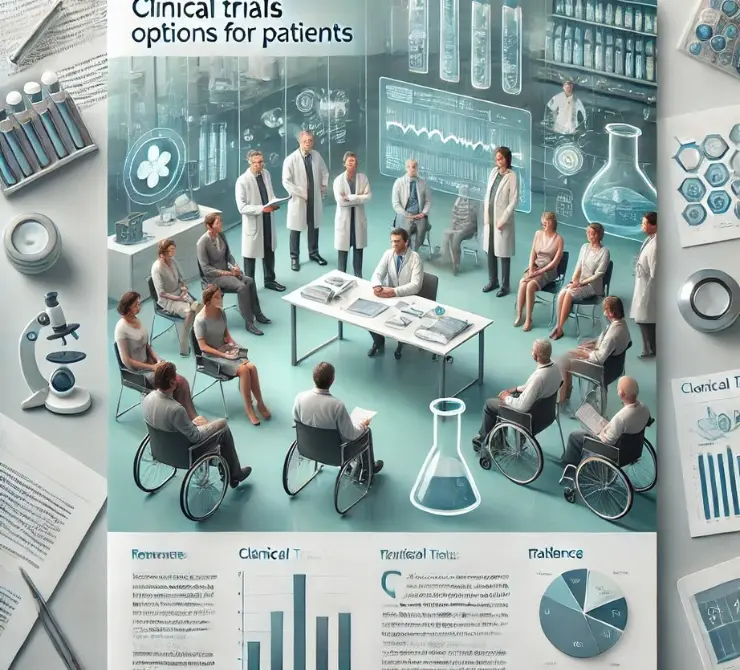
Participating in clinical research offers a unique range of benefits, both for individuals and for the advancement of medical science. From gaining early access to cutting-edge treatments or preventive medicine as well as receiving close health monitoring to reducing healthcare costs and actively participating in one’s own care, clinical trials provide opportunities that go beyond standard medical care. Participants often experience a sense of empowerment and increased health awareness, while also contributing to future medical breakthroughs that can benefit others. Clinical research is essential for expanding scientific knowledge, ensuring diverse representation in healthcare, and improving public health. Whether you’re seeking new treatment options or hoping to make a positive impact, participating in clinical research can be a rewarding experience with lasting benefits.
While participating in clinical research offers valuable opportunities, there are also important cautions and risks to consider. Treatments in trials sometimes look at using an existing known therapeutic but for a different indication, and other times they are new experimental treatments being tested, so side effects or adverse reactions are possible, and outcomes are not guaranteed. Some participants may experience no improvement, especially if they are assigned to a placebo group. Clinical studies may also require a significant time commitment, including frequent visits and long-term involvement, which can be demanding. There may be personal expenses for travel or uncovered medical costs, and the intensity of participation can lead to stress or emotional challenges. Additionally, participants must adhere to study protocols, which may impact usual treatments and require adjustments. Privacy is another consideration, as sharing personal health data is part of clinical research, though confidentiality measures are taken. Weighing these risks with the potential benefits and discussing them with your doctor can help you make an informed decision about joining a clinical study.
Innovative Studies for Anxiety and Depression: SAINT Protocol and Transcranial Ultrasound (TUS) Anxiety Trial
Stanford in collaboration with Acacia Clinics (Sunnyvale and Monterey locations) is conducting two promising studies aimed at advancing treatment options for individuals experiencing anxiety, depression, and potentially other conditions.
TUS Anxiety Trial: This study is exploring Transcranial Ultrasound Stimulation (TUS) as a non-invasive treatment for anxiety disorders. TUS uses ultrasound waves to modulate brain activity in regions associated with anxiety, offering an innovative therapeutic approach without medications. The trial aims to assess the safety and effectiveness of TUS for anxiety, with preliminary data very promisingly showing 79% of patients having significant improvement in anxiety. There are plans to expand the trial IRB to new indications in the future, including Post-traumatic Stress Disorder (PTSD) or PTSI (Post-traumatic Stress Injury) hopefully in early 2025, and potentially Parkinson’s disease etc.
SAINT Protocol Study for Depression: This study focuses on the SAINT (Stanford Accelerated Intelligent Neuromodulation Therapy) protocol, an advanced form of transcranial magnetic stimulation (TMS) specifically designed for treatment-resistant depression. SAINT uses high-frequency magnetic pulses directed at specific brain regions involved in mood regulation. Unlike traditional TMS, which may require sessions over several weeks, the SAINT protocol delivers a series of rapid, closely spaced treatment sessions over a few days. Initial results are promising, with some participants experiencing rapid symptom relief.
Heart & High Blood Pressure Clinical Studies
Heart Disease for many years has been the leading cause of death in the United States. At Stanford’s “Health Matters” conference which is an annual free symposium open to the public and hosted on campus which I posted about in a prior newsletter, they had several stalls on various health issues including heart health and blood pressure, and had some flyers regarding opportunities to participate in related research.
Heart Disease Clinical Trial Registry: If you have a family history of heart disease, you may be eligible for research trials to further explore preventive care, disease progression, or novel treatments. Clinical trials can provide additional insights and access to new therapies. Check your eligibility and learn more by exploring the Heart Disease Clinical Trial Registry.
High Blood Pressure Treatment Study: A new study is investigating a promising procedure for patients with treatment-resistant high blood pressure. This involves renal denervation, a process that targets nerves in the kidney responsible for regulating blood pressure. For individuals who haven’t responded to other treatments, this study could offer a new way forward. While details on the study site weren’t provided, to see if you qualify, contact study lead Maria Perias at [email protected].
Ways to Search for Clinical Trials Relevant to You
If you’re interested in finding clinical trials specific to your health needs or conditions, there are several comprehensive resources available. From a local perspective, Stanford’s Clinical and Translational Research Unit also provides a curated listing of local and specialty trials through the Stanford Clinical Trials Directory. UCSF also offers a comprehensive search for clinical trials here. The U.S. government’s ClinicalTrials.gov offers a vast database where you can search for studies by condition, location, treatment, and eligibility criteria. For international studies, the World Health Organization’s International Clinical Trials Registry Platform consolidates trial data from multiple countries, allowing you to search global clinical research opportunities. These tools can help both patients and providers find studies that are tailored to specific health conditions, making it easier to explore new or experimental treatment options.
Whether you’re looking to participate in clinical research, or learn about new treatments, these programs and studies can offer valuable resources and opportunities to improve your health and make a meaningful impact in medical research.
I have no conflicts of interest to disclose. All information shared is for purposes of sharing education and knowledge.
If you have feedback on this article or on future topics you’d like Dr. Maia Mossé to write about, or are interested in working with Dr. Mossé, feel free to message the team at [email protected] or via Instagram at @villagedoctor.
Read Also: Unlocking Longevity and Vitality: The Power of Exercise
Maia Mossé, MD, November, 2024
Call The Village Doctor at (650) 851-4747 or Contact us to learn more about the practice.


